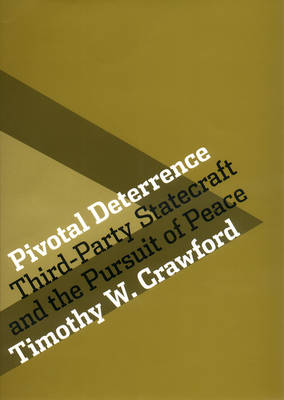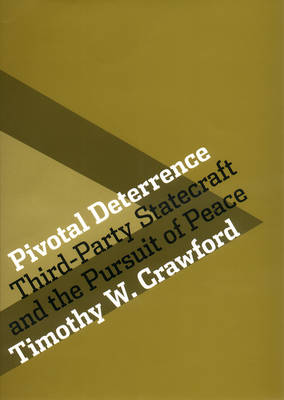
- Retrait gratuit dans votre magasin Club
- 7.000.000 titres dans notre catalogue
- Payer en toute sécurité
- Toujours un magasin près de chez vous
- Retrait gratuit dans votre magasin Club
- 7.000.000 titres dans notre catalogue
- Payer en toute sécurité
- Toujours un magasin près de chez vous
Description
As the preponderant world power, the United States is a potential arbiter of war and peace between such feuding rivals as India and Pakistan, Turkey and Greece, China and Taiwan. How can it deter them from going to war and impel them to accept compromise without firmly choosing sides? This age-old strategic dilemma, which Timothy W. Crawford calls "pivotal deterrence," has become a central challenge of international security in today's unipolar world.Crawford explains the political dynamics of pivotal deterrence and the conditions under which it is likely to succeed, while examining some of its most impressive feats and failures. German Chancellor Otto von Bismarck's agile approach to the 1870s Eastern Crisis, which prevented war between Russia and Austria-Hungary, is contrasted with Britain's ambiguous and ill-fated maneuvers to deter Germany and France in July 1914. Shifting to the 1960s Cold War, Crawford explores the successes and setbacks in U.S. efforts to prevent NATO allies Greece and Turkey from fighting over Cyprus and to defuse the Kashmir conflict between India and Pakistan. Capping the analysis is a rich look at similar U.S. efforts in the 1990s in South Asia, the Aegean, the Balkans, and East Asia. Crawford concludes with an assessment of the prospects for American pivotal deterrence in the years ahead and its implications for international relations theory.
Spécifications
Parties prenantes
- Auteur(s) :
- Editeur:
Contenu
- Nombre de pages :
- 296
- Langue:
- Anglais
- Collection :
Caractéristiques
- EAN:
- 9780801440977
- Date de parution :
- 15-12-03
- Format:
- Livre relié
- Format numérique:
- Genaaid
- Dimensions :
- 178 mm x 228 mm
- Poids :
- 630 g







